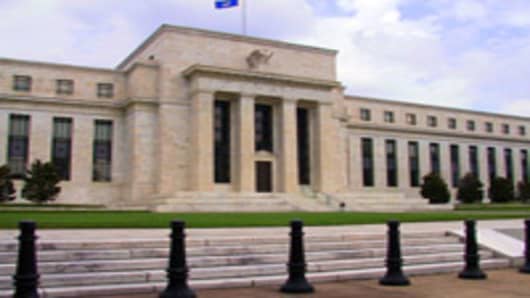Following Moody’s decision fire a shot across the bows of talks over raising the US debt ceiling a key option facing Vice President’s working committee on the debt ceiling has been removed according to Jeremy Batstone-Carr, the director of private client research at Charles Stanley in London.
“This is no longer a laughing matter. In our opinion the main issue is whether the two sides can reach substantive agreement in time” said Batstone-Carr in a note to clients on Friday.
With Moody’s predicting the most likely outcome will be a failure to reach a consensus by mid-July, the point at which it would review its outlook for US debt, not August 2, which is the official deadline for the talks, there is a very real chance that Moody’s could act on its US rating, according to Batstone-Carr.
“This sequence, were it to be followed through, raises the possibility of a TARP-like event in which the markets react badly ahead of the resolution of the debt ceiling negotiations,” he said, referring to the Troubled Assets Relief Program, which used US government funds to buy assets from financial institutions.
“This is significant in our view as, in combination with the apparent economic slow down; its impact on the financial markets could be greater than the impact of the “soft patch” in the summer of 2010,” he added.
As a result Batstone-Carr believes the idea of a tactical default is now off the table.
“Some entrenched views have argued in favour of a “tactical default,” suggesting that such a move might have a minimal impact on the markets and could even be seen as beneficial if it resulted in a long-term deficit reduction plan to be enacted,” he said.
“The Moody’s announcement effectively removes this view, as a short-term default would clearly have catastrophic consequences in its opinion. Were a “debt-ceiling-related default to occur,” a rating downgrade would likely follow “shortly thereafter”.
The other options on the table are in Batstone-Carr’s view drastic short-term cuts that could further hinder the recovery or as former UK prime minister Tony Blair would have said, ‘a third way’.
“A 'third way' for the US, which might be acceptable to the markets, involves modest up-front spending cuts, a commitment to deal with the long-run deficit with credible and enforceable compliance mechanisms, coupled with a lifting of the near-term debt ceiling”.
“It is a high risk strategy but there are few viable alternatives around and we suspect that Vice President Biden’s working party may be seeking a compromise along just these lines” said Batstone-Carr.
“Time is running out!”



